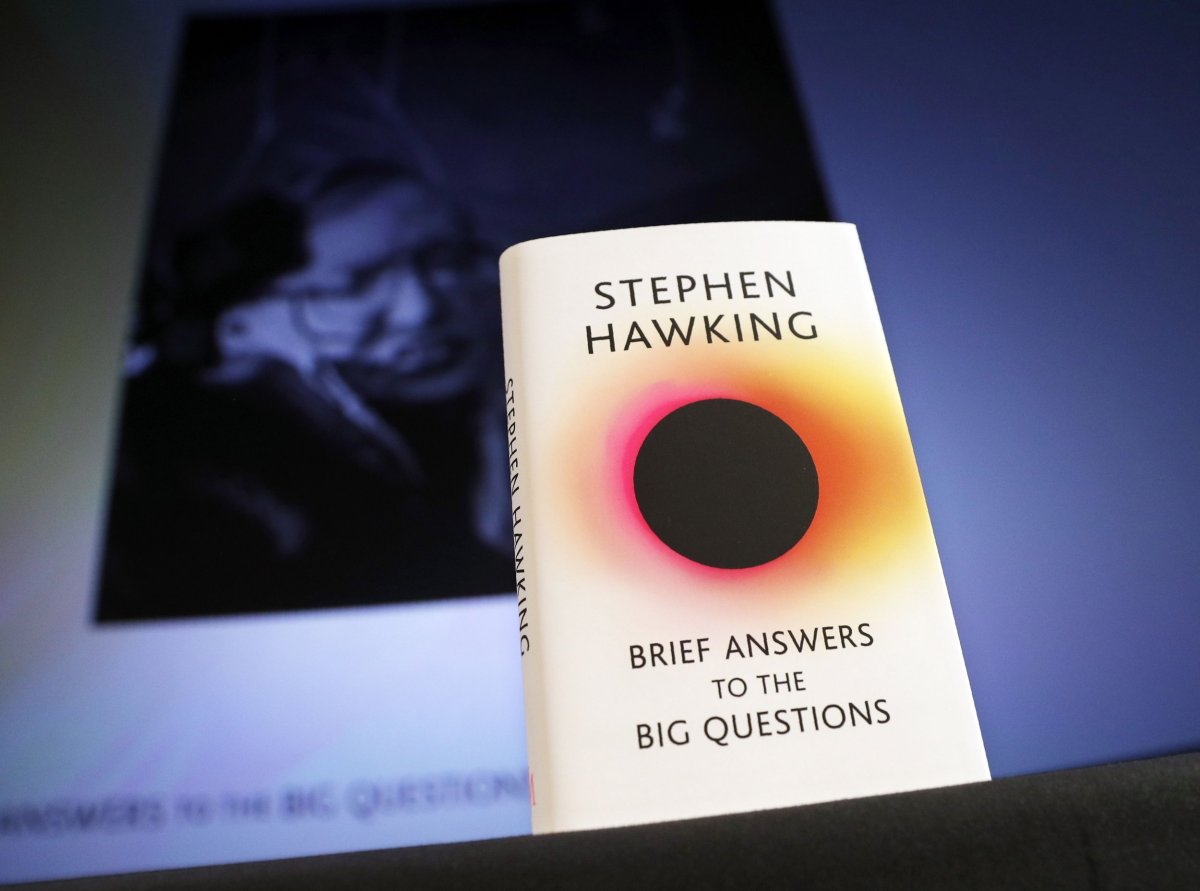Before his death in March of this year, Stephen Hawking warned that genetic engineering could lead to the rise of a superhuman species, with disastrous consequences for the rest of humanity.
The stark message is just one of many predictions outlined in the renowned theoretical physicist's new book, Brief Answers to the Big Questions, which was published today.
According to the publishers, Hawking was regularly asked for his thoughts on the "big questions" by scientists, tech entrepreneurs, senior business figures, political leaders and the general public.
The book, which was in development when he died, draws upon an enormous personal archive of responses to these questions, which he maintained in the form of speeches, interviews and essays. Each chapter addresses one major issue, with titles such as "Is There a God?" or "Can We Predict the future?" or "Will We Survive on Earth?"
Addressing the subject of genetic engineering, Hawking predicts that wealthy people with the financial means to do so will alter the DNA of their children to enhance their capabilities.
"I am sure that during this century people will discover how to modify both intelligence and instincts such as aggression," he wrote in excerpts published by The Sunday Times. "Laws will probably be passed against genetic engineering with humans. But some people won't be able to resist the temptation to improve human characteristics, such as memory, resistance to disease and length of life."
Hawking argues that using genetic engineering in this way could lead to a dangerous divide between superhumans and what he calls "unimproved humans."

"Once such superhumans appear, there will be significant political problems with unimproved humans, who won't be able to compete," he wrote. "Presumably, they will die out, or become unimportant. Instead, there will be a race of self-designing beings who are improving at an ever-increasing rate."
While such a prediction may seem far-fetched, he refers to techniques, such as Crispr, which is already widely used today. Crispr, which was invented six years ago, essentially allows scientists to "copy and paste" DNA code. Currently, it is being harnessed for a variety of purposes—including the treatment of people with certain diseases—and a handful of labs around the world are actually working with human embryos, albeit under strict watch.
Moving on to another major issue, Hawking stresses the importance of regulating artificial intelligence before it's too late, with a particular emphasis on preventing the development of autonomous weapons.
"In short, the advent of superintelligent AI would be either the best or the worst thing ever to happen to humanity," he wrote. "The real risk with AI isn't malice, but competence. A superintelligent AI will be extremely good at accomplishing its goals, and if those goals aren't aligned with ours we're in trouble."
"You're probably not an evil ant-hater who steps on ants out of malice, but if you're in charge of a hydroelectric green-energy project and there's an anthill in the region to be flooded, too bad for the ants. Let's not place humanity in the position of those ants."
On the future of Earth, Hawking argues that we need to start looking beyond our own planet if we are to survive as a species.
"One way or another, I regard it as almost inevitable that either a nuclear confrontation or environmental catastrophe will cripple the Earth at some point in the next 1,000 years," he wrote. "By then I hope and believe that our ingenious race will have found a way to slip the surly bonds of Earth and will therefore survive the disaster. The same, of course, may not be possible for the millions of species that inhabit the Earth, and that will be on our conscience as a race.
"We are acting with reckless indifference to our future on planet Earth. At the moment, we have nowhere else to go, but in the long run the human race shouldn't have all its eggs in one basket, or on one planet," Hawking wrote. "I just hope we can avoid dropping the basket before we learn how to escape from Earth."
When it comes to the existence of other intelligent life in the universe, Hawking doesn't make any concrete predictions, but instead offers explanations as to why we haven't found it yet or been visited by an alien race (he discounts reports of UFO sightings, arguing that any visits from aliens would be much more obvious and unpleasant).

"If the argument about the timescale for the appearance of life on Earth is correct, there ought to be many other stars whose planets have life on them," he wrote. "Some of these stellar systems could have formed 5 billion years before the Earth—so why is the galaxy not crawling with self-designing mechanical or biological life forms?
"Maybe the probability of life spontaneously appearing is so low that Earth is the only planet in the galaxy—or in the observable universe—on which it happened. Another possibility is that there was a reasonable probability of forming self-reproducing systems, like cells, but that most of these forms of life did not evolve intelligence. We are used to thinking of intelligent life as an inevitable consequence of evolution, but what if it isn't?"
In the book, Hawking goes on to outline what he thinks the biggest threats that humanity is facing are.
"An asteroid collision would be a threat against which we have no defense," he wrote. "But the last big such asteroid collision was about 66 million years ago and killed the dinosaurs. A more immediate danger is runaway climate change. A rise in ocean temperature would melt the ice caps and cause the release of large amounts of carbon dioxide. Both effects could make our climate like that of Venus with a temperature of 250 degrees Celsius."
It's not all doom and gloom, however, as Hawking also shares his thoughts on one idea that could transform the future of humanity for the better.
"This is easy: The development of fusion power to give an unlimited supply of clean energy, and a switch to electric cars," he wrote. "Nuclear fusion would become a practical power source and would provide us with an inexhaustible supply of energy, without pollution or global warming."
Uncommon Knowledge
Newsweek is committed to challenging conventional wisdom and finding connections in the search for common ground.
Newsweek is committed to challenging conventional wisdom and finding connections in the search for common ground.
About the writer
Aristos is a Newsweek science reporter with the London, U.K., bureau. He reports on science and health topics, including; animal, ... Read more
To read how Newsweek uses AI as a newsroom tool, Click here.








